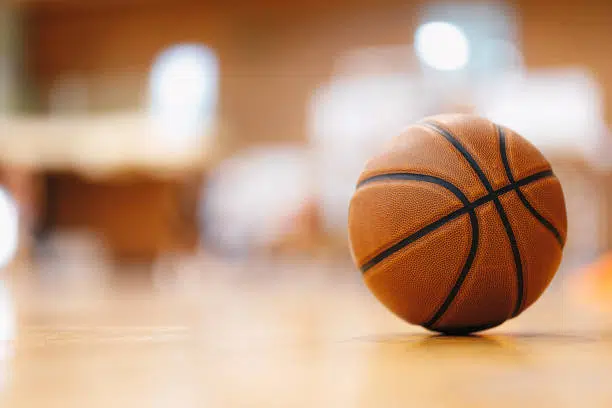What Happens When Youth Are Involved in Conversations on Safety?
As a volunteer staff at North High School, Odell Wilson- Community Peacebuilder & part-time basketball coach/mentor- spends a lot of time building relationships with young male students. During the basketball season, he works with about 15 kids. Since the season ended, he’s been consistently working with three youth in particular, continuing to guide and support them off the court.
What might look like just another basketball mentorship is, in reality, a foundation for peacebuilding. Through everyday moments—games, car rides, journaling, and conversations—these teens are learning to stay grounded, think critically, and lead in their own way. And sometimes, that learning shows up in the most unexpected places.
Youth Take the Lead on De-escalation
Last season, North High faced a game against their rivals. Security was hired for the event in case a fight broke out. Unfortunately, a huge brawl did break out. But, the hired security wasn’t the only team prepared.
Odell (Coach Biggs) caught a glimpse of the youth and gestured for them to come over, but he was taken aback by the response he received. Jordan* reassured his mentor, “Coach, I wasn't going out there to watch them fight— I was making sure none of our people were getting involved.”
After putting Odell at ease, Jordan got back to work. With hands out, blocking the door, he informed fellow students, “Listen, y’all, they're out there fighting. You guys need to go back into the gym where it’s safe.”
In a skilled display of situational awareness, these freshmen boys were able to deescalate the attendees. None of the students hesitated in realizing they could play a role in keeping players and attendees safe. And it all began with mentoring conversations with Odell—talking about what safety really looks like and how to de-escalate when things get tense.
Learning Through Observation: A Second Fight, a New Perspective
Although their season was done, the athletes wanted to continue showing support for friends at other schools by attending their games. As a caring mentor, Odell transported the youth to the game.
While attending one game, another fight broke out.
Odell stood between them to physically keep the fighting youth apart (within unarmed civilian protection, this is called 'interpositioning’.) As the crowd watched the fight unfold, the mentees knew they shouldn’t take on this level of risk among active fighting. But they watched closely to learn how Coach Biggs defused the fight.
While driving the group back home, the boys rattled off tons of questions: Coach Biggs, how did you feel in that moment? What made you get the courage to go out there and put yourself in that situation?
Odell was delighted to see the students genuinely curious about how to handle conflict and practice de-escalation. He asked them directly, “What would you have done in that situation?” Each kid had their own take.
One said, “Honestly, I wouldn’t have stepped in. But what I did do—and would do again—is make sure the group I came with was safe and we got out of there.” Another nodded in agreement.
It’s never about having the “right answer”, it’s about their reflection, recognizing their limits, and finding a response that feels true to them.
Reflections and Real Conversations
During spring break, the teenagers woke up at 8 AM to come down to NP’s Hub for Nonviolence and Safety by 8:30AM in the morning. Each day began with a “mental session.”
When they’re with Coach Biggs during the week, they’re figuring things out, learning as they go. Some days that looks like a workout. Other days, it’s showing up at the Hub for an event, or just stopping by the office to talk about Unarmed Civilian Protection (UCP) work.
Sometimes, Odell offers up simple, yet reflective journaling prompts, like, “think of a time you felt disappointed. How did you move through it?”
And from there, they write. They reflect. Maybe they hear someone else’s story and sit with that for a bit. It’s not always about the perfect answer—it’s about noticing what comes up, and learning to listen, even to themselves.
During a recent wellness session, Odell asked the boys to write down the hobbies they genuinely enjoy, things that make them feel like themselves. This prompt expanded their self-awareness and ability to identify the activities that truly bring them joy. The simple exercise helped the students get in touch with who they are beyond the noise. And through it all, a simple mantra began to take root, one that keeps them moving, striving, and showing up.
Prove Them Wrong: Turning a Phrase into a Movement
In our society, the bar is set low for BIPOC high school students facing adversities. Odell admits, “I don’t sugarcoat the way staff and adults perceive them or the expectations that others have for them.” This form of tough love or “hard truth” as he likes to call it, has evolved into mutual respect.
While students are aware of societal expectations, they’ve found new motivation in defying expectations following Odell’s reminder that they too can control their narrative, “either y'all could prove their [society’s] point or y'all could prove them wrong.”
This catch phrase has been a really motivating mantra for students to lean into. On a couple occasions, the North High basketball team used “prove them wrong” as their team cheer.
“Prove them wrong on three! Ready—1, 2, 3!” United by a shared motivation, the boys enthusiastically shouted, “Prove them wrong!" in unison.
It’s more than motivation, it’s a mindset. And for these students, it’s the start of something bigger: rewriting their own stories, together.
*Name changed for privacy

